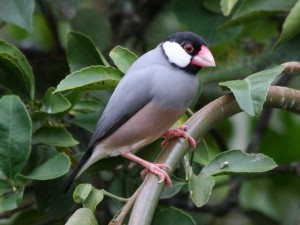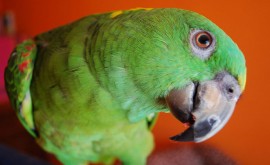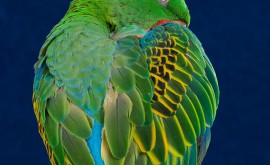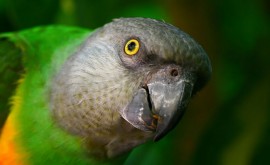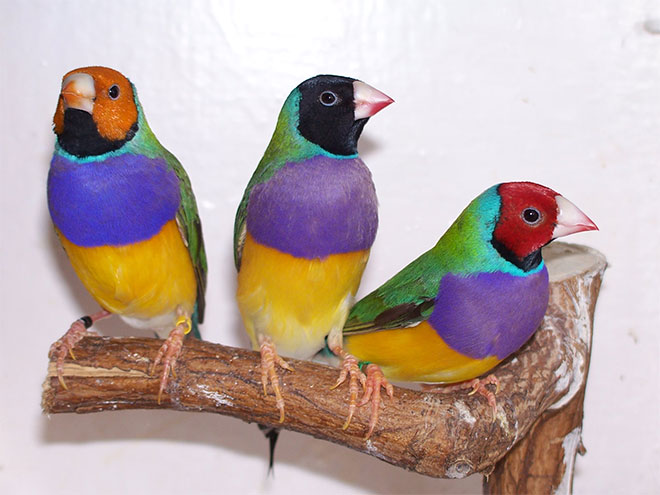 There are hundreds of different species that make up the finch family. They are a very small bird (2-4 inches) that come from all parts of the world. Their life span is generally 6-8 years and are a very low maintenance caged bird. I’ll only discuss the most popular species that we carry which are zebra, society and Gouldians, and java rice finches.
There are hundreds of different species that make up the finch family. They are a very small bird (2-4 inches) that come from all parts of the world. Their life span is generally 6-8 years and are a very low maintenance caged bird. I’ll only discuss the most popular species that we carry which are zebra, society and Gouldians, and java rice finches.
Caging requirements are more horizontal room than vertical for maximum flying, exercise and happiness. The wider the better in regards to their cages. Most male finches will sing different melodies when they are in courtship with a female or looking for a mate for breeding.
Family rating: As these birds are the easiest to take care of and are generally not finger trained most families just enjoy watching them and their business inside their cages. They breed easy and are very prolific.
You can start with one pair and in a few short months end up with a dozen or so. Finches are peaceful birds and do well when kept in pairs or colonies. Colonizing finches is somewhat easy but it’s not without research before colonizing too many different finches as some are menacing or more aggressive than others.
Noise Level: Very minimal. Finches are very quiet and beep softly. The males can sing with a little volume but not much.
Cuddle Rating: Finches are generally not held but some can be finger trained. It is not recommended to clip a finch’s wings. They are not great flyers anyway and grounding them could causes depression or the lack of exercise can cause egg binding.
Hypoallergenic: The finch will molt as all birds do but they do not produce a powder. You’ll see down feathers during molting season but this should not cause anyone to suffer allergies from them.
Diet/Health Concerns: Although generally a hardy species, finches can experience egg-binding. Provide your finch a varied diet consisting of seeds, fresh greens like broccoli and Brussels sprouts, cuttlebone and egg food. They need extra foods during molting season which you can also offer a mix of equal quantities of white millet, Japanese millet, panicum millet and plain canary seed. They are so small and can be very susceptible to cold weather changes, mites and mosquito bites.

